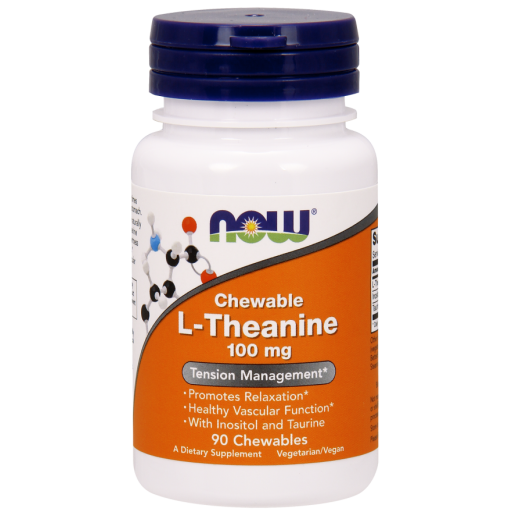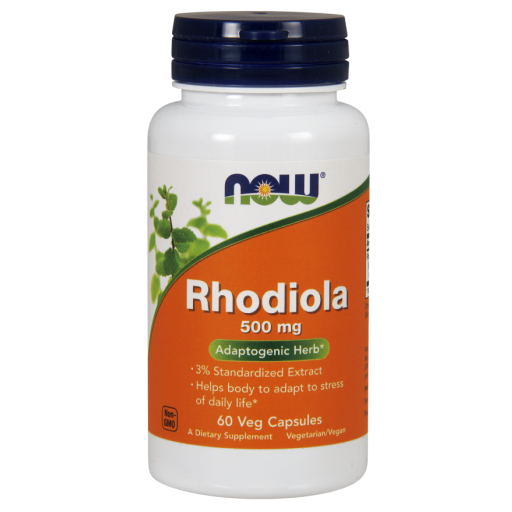Discover The Role of High Cortisol Hormone in Weight Loss
For the purpose of weight loss resistance, we will only address the role of cortisol in weight gain or weight loss resistance.
Many people have been working out and following the right diet but still cannot lose weight.
Signs of High Cortisol (Cushing's Syndrome)
 Cushing's Syndrome[/caption]
Cushing's Syndrome[/caption]
What is Cortisol Hormone?
Cortisol is a glucocorticoid (a type of steroid) made naturally in the human body and acts as the primary endogenous stress hormone.
Endogenous means = made internally in the body
This is why many people refer to cortisol as “the stress hormone” since the adrenal glands secrete it in response to both internal and external stressors.
But cortisol is an essential hormone and it’s not necessarily “evil” or “bad” like many people presume. - If you can keep it within the normal range.
Physiologically, the adrenal glands secrete cortisol for regulating metabolism, development, immune function, and cognition/alertness. It is very much necessary for proper health and sustaining our lives.

However, if you produce too much (or too little) cortisol, it can lead to health ramifications.
These include chronic fatigue, anxiety, impaired insulin sensitivity (i.e. insulin resistance), cardiovascular risks such as elevated blood pressure and LDL cholesterol, and bone health risks such as osteoporosis.[1],[2],[3]
Cortisol typically spikes right after waking up and decreases throughout the day (assuming external stressors don’t arise).
Disruption of your natural cortisol rhythms (i.e. having high levels throughout the day and low levels after waking) can make you feel lethargic, restless, anxious, and unable to focus or concentrate.
Naturally, you need to keep your cortisol rhythms and levels in a healthy range to ensure proper health and longevity.
With that in mind, let’s take a look at how cortisol affects weight loss and body composition.
Cortisol and Weight Loss
Cortisol plays a major role in muscular atrophy (“shrinkage”) due to its catabolic properties.
Catabolic means = breakdown
In contrast to anabolic hormones - like testosterone and insulin - use free energy and substrates to build tissues, catabolic hormones break down tissues and substrates in the body to help produce energy.
Even though cortisol is a catabolic hormone, it is essential to sustain life. In fact, cortisol is the main hormone responsible for helping you jump out of bed when your alarm sounds in the morning.
Cortisol is also what keeps you going when you’re exhausted and deprived of nourishment.
How? Cortisol stimulates processes like glycogenolysis and gluconeogenesis.
Glyco - Glucose
Geno = Generate
Lysis = Disintegration
Genesis = Origin or form new
Glyconeolysis = Breaking down of stored glucose into useful glucose
Gluconeogenesis = making of new glucose in the body
These processes help keep your blood sugar levels in a healthy range when you haven’t eaten for an extensive period of time (such as fasting).
Unfortunately, your body needs to get its energy from somewhere and gluconeogenesis usually comes at the expense of breaking down lean tissue (e.g. muscle) so it can convert the amino acids to glucose.
HINT: When cortisol levels are elevated, muscle mass is lost due to the breakdown of muscles to Glucose. Blood sugar levels are elevated.
Thus, cortisol is often mislabeled as a “bad” hormone since it's largely catabolic and increases in response to stress. In reality, cortisol is not “bad” or “unhealthy”, quite the contrary actually.
Cortisol is very useful for weight loss when you produce a healthy amount of it and in the right fashion. The following sections detail why that is and actionable ways to modulate cortisol production for improving body composition and weight loss.
Cortisol Rhythms and Their Importance: Good Cortisol vs. Bad Cortisol
In healthy individuals, cortisol has a well-defined circadian rhythm that is highest in the morning and slowly dissipates in the coming hours.
HINT: Every time you hear about the circadian cycle, think about the sleep-wake cycle. Think about melatonin hormone. Think about day time and night time.
Assuming you don’t encounter any abnormal stressors throughout the day, blood cortisol levels are typically 50% or less of what they were in the morning.
In general, if a cortisol spike is disruptive to sleep or skews your natural circadian rhythms, then it is “bad” cortisol.
The cortisol elevations you experience from things like exercise and waking up in the morning constitute “good” cortisol.
But why is that?
One study assessed lipolysis (fat breakdown) in the subcutaneous fat tissue found in the belly region under normal conditions and when cortisol levels were suppressed.
The data showed that the magnitude of early morning cortisol spikes appears to significantly alter venoarterial levels of nonesterified fatty acids and glycerol, likely by modulating hormone-sensitive lipase (HSL) activity.[14]
There was also a significant reduction in adipose lipoprotein lipase (LPL) rate of action when morning cortisol levels were suppressed.
HSL and LPL are two enzymes that work to liberate fatty acids so that they can be used for energy.
In other words, if you hinder the actions of HSL and LPL, you also impede your body’s capacity to burn fat and lose weight.
HINT: Sleeping at night and being awake during the day is healthy. Adding exercise can only make it better - Good cortisol.
In this regard, blunting your intrinsic morning cortisol spike is counterproductive, especially if your goal is to lose weight and reduce body fat.
As such, the study concluded that "Plasma cortisol concentration plays an important role in the regulation of lipolysis in adipose tissue in normal healthy adults.
"Cortisol also exhibits synergy with fasting, exercise, and growth hormone, all of which stimulate lipolysis and promote weight loss.
There are two things that can reduce/disrupt morning cortisol rhythms and make this period less optimal for fat loss.
- One is elevated insulin (or insulin resistance) which antagonizes cortisol secretion.
- Second is chronic stress. Stress brings with it some “bad” cortisol.
Bad cortisol results from glucocorticoid excess, which increases blood pressure, reduces insulin sensitivity, promotes muscle protein catabolism and elevates blood sugar levels.
Bad cortisol (elevated or prolonged cortisol) needs to be controlled by stress reduction, entrainment of the circadian rhythm.
Timed supplementation with adaptogens and ingredients like phosphatidylserine (to reduce the conversion of cortisone to cortisol in various tissues) & Ashwagandha can help regulate bad cortisol.
The overuse of stimulants can contribute to cortisol release and exacerbate the aforementioned issues.
Naturally, many people find that sleep and recovery are better when reducing or discontinuing stimulant use (which may mean drinking less coffee).
Cortisol Release and Weight Loss
To reiterate, if you like to exercise in the morning, blunting cortisol release with a supplement is not a wise decision as you will simply inhibit your body’s innate tendency to burn fat for energy during that time.
If you’re concerned about muscle loss from such instances, an essential amino acid supplement can help protect you from any acute muscle tissue catabolism.[15]
Note that while muscle protein synthesis typically antagonizes fat-burning pathways, even a small serving (5-10 grams) of essential amino acids can have pronounced muscle-sparing benefits without impeding fat loss.
Since resistance training can elevate cortisol levels by nearly 600% over baseline values, supplementing with phosphatidylserine (from lecithin) and certain adaptogens will prove useful if you workout later in the day.[16]
For example, you’ll find it much easier to get to bed after a late-night workout if you attenuate the associated cortisol spike.
With that in mind, training in the evening tends to be more effective for muscle-building purposes, while training in the morning is more effective for fat loss.
For people who exercise very late at night, it is best to avoid stimulants prior to working out as they can dysregulate your normal cortisol circadian rhythms.
Best Supplements for Healthy Cortisol Balance
Naturally, many people wonder what supplements can be taken to make sure the adrenal glands are working in a healthy manner so that they don’t produce abnormal amounts of cortisol.
If you find yourself stressed out all the time, in a poor mood, and struggling to lose weight, then adaptogens can help.
Adaptogens are a growing subclass of herbal supplements that work primarily by supporting healthy cortisol rhythms and adrenal function. These herbs are called adaptogens as they quite literally help your body “adapt” to stress.
Read on to learn which adaptogens are most effective for reducing stress, improving your mood, and helping balance cortisol levels so you can lose weight more efficiently.
1) Ashwagandha (Withania somnifera)
Ashwagandha, also known as Indian ginseng, is an adaptogenic plant with a multitude of beneficial properties in humans.
Research consistently demonstrates that ashwagandha root extract is a potent herbal supplement for reducing stress, the risk of illness, and fatigue.[4] Clinical research findings are compelling enough to suggest that ashwagandha can treat neurodegenerative disorders and even chronic fatigue syndrome.[5]
On the molecular level, ashwagandha plants contain myriad therapeutic substances, including, choline, alkaloids, saponins, withanolides, and withaferins.
Of particular note is a compound known as withaferin-A, which was first discovered in ashwagandha root.
This steroidal lactone has been shown to fight inflammation, reduce the risk of cancer, protect against excess oxidative stress, decrease food cravings, and enhance feelings of well-being.[6]
Start by looking for a 2:1 or 5:1 ashwagandha root extract supplement, and take 250-500 mg once per day (preferably on an empty stomach).
2) L-Theanine (Green Tea)

L-Theanine is structurally similar to the dietary amino acids L-glutamate and L-glutamine; it is found naturally in green tea leaves and has a multitude of therapeutic effects throughout the body.[7]
Cognitively speaking, L-theanine induces feelings of “alert relaxation” by making users feel focused but not “wired” like stimulants often do.
This makes L-theanine a great option for reducing stress and promoting cognition. Taking L-theanine prior to bed can also enhance sleep quality and duration.
Moreover, the adaptogenic properties of L-theanine make it ideal for pairing with stimulant-based weight loss aids, like caffeine.
In fact, research shows that ingesting L-theanine with caffeine creates a synergy that is not seen when taking only one or the other.[8]
Try starting with 100 mg of an L-theanine supplement taken once daily (increase to 150 mg per dose if necessary).
3) Relora® (Magnolia officinalis and Phellodendron amurense)

Relora® is a trademarked supplement containing plant-based ingredients that support overall well-being and mood by balancing stress hormone production from the hypothalamic-pituitary-adrenal (HPA) axis.[9],[10],[11]
The HPA axis is the connection between your brain and adrenal glands that ultimately regulates cortisol rhythms.
As such, dysfunction of the HPA axis can lead to conditions such as chronic fatigue syndrome and Cushing’s syndrome. Supplementing with Relora® can help ensure your HPA axis functions properly in response to stress, and should be taken three times daily - 200 mg per dose - for maximum effect.
4) Rhodiola root (Rhodiola Rosea)
Rhodiola is a perennial flowering plant containing potent therapeutic compounds called salidroside and rosavins (particularly in the roots).
Research suggests that these compounds have a suppressive effect on stress-induced cortisol secretion.[12] Rhodiola also appears to have “alert relaxation” properties similar to L-theanine, making it a wise choice if you're also supplementing with stimulants to promote fat loss.[13]
Look for Rhodiola root extract supplements with at least 3% salidroside and 1% rosavins, and take up to 500 mg once or twice per day.
Benefits of Adaptogens Summary
Given the many physiological benefits of healthy cortisol rhythms, supplementing with the suggested adaptogens can support overall well-being and longevity in a variety of ways. These research-backed benefits include:
- Encourage healthy cardiovascular, adrenal, and immune function
- Improve blood sugar balance and insulin sensitivity
- Promote healthy blood lipid levels
- Help maintain healthy sleep patterns
- Curb sugar cravings
- Help reduce inflammation and oxidative stress
- Protect cell membranes and encourage optimal cell signaling
- Enhance brain health & cognitive function
Best of all, adaptogens are typically very-well tolerated and have minimal side effects, if any.
Many people notice that they have an easier time losing weight and keeping it off by using adaptogens since they help optimize your cortisol rhythms and promote a myriad of other beneficial effects in the body.
Give one (or all four) of the adaptogens discussed herein a shot. Odds are you’ll feel less tension and be in a brighter mood throughout the day, both of which will help you stay on track with your diet and exercise regimen.
Remember, allowing cortisol to rise in the morning is beneficial for weight loss (especially if you exercise at this time); regulating production in the later parts of the day with adaptogens is best for body composition purposes.
Over to You... Which of these adaptogens have you tried or willing to try?
Leave a comment below and I will personally respond
References
- Biller, B. M., Saxe, V., Herzog, D. B., Rosenthal, D. I., Holzman, S., & Klibanski, A. (1989). Mechanisms of osteoporosis in adult and adolescent women with anorexia nervosa. Journal of Clinical Endocrinology & Metabolism, 68(3), 548-554.
- Fraser, R., Ingram, M. C., Anderson, N. H., Morrison, C., Davies, E., & Connell, J. M. (1999). Cortisol effects on body mass, blood pressure, and cholesterol in the general population. Hypertension, 33(6), 1364-1368.
- Brown, E. S., Varghese, F. P., & McEwen, B. S. (2004). Association of depression with medical illness: does cortisol play a role?. Biological psychiatry, 55(1), 1-9.
- Kulkarni, S. K., & Dhir, A. (2008). Withania somnifera: an Indian ginseng. Progress in neuro-psychopharmacology and biological psychiatry, 32(5), 1093-1105.
- Ven Murthy, M. R., K Ranjekar, P., Ramassamy, C., & Deshpande, M. (2010). Scientific Basis for the Use of Indian Ayurvedic Medicinal Plants in the Treatment of Neurodegenerative Disorders: 1. Ashwagandha. Central Nervous System Agents in Medicinal Chemistry (Formerly Current Medicinal Chemistry-Central Nervous System Agents), 10(3), 238-246.
- Chen, L. X., He, H., & Qiu, F. (2011). Natural withanolides: an overview. Natural Product Reports, 28(4), 705-740.
- Juneja, L. R., Chu, D. C., Okubo, T., Nagato, Y., & Yokogoshi, H. (1999). L-theanine—a unique amino acid of green tea and its relaxation effect in humans. Trends in Food Science & Technology, 10(6), 199-204.
- Haskell, C. F., Kennedy, D. O., Milne, A. L., Wesnes, K. A., & Scholey, A. B. (2008). The effects of L-theanine, caffeine and their combination on cognition and mood. Biological psychology, 77(2), 113-122.
- Unno, K., Tanida, N., Ishii, N., Yamamoto, H., Iguchi, K., Hoshino, M., ... & Yamada, H. (2013). Anti-stress effect of theanine on students during pharmacy practice: positive correlation among salivary α-amylase activity, trait anxiety, and subjective stress. Pharmacology Biochemistry and Behavior, 111, 128-135.
- Talbott, S. M., Talbott, J. A., & Pugh, M. (2013). Effect of Magnolia officinalis and Phellodendron amurense (Relora®) on cortisol and psychological mood state in moderately stressed subjects. Journal of the International Society of Sports Nutrition, 10(1), 37.
- Mishra, L. C., Singh, B. B., & Dagenais, S. (2000). The scientific basis for the therapeutic use of Withania somnifera (ashwagandha): a review. Alternative medicine review, 5(4), 334-346.
- Panossian, A., Hambardzumyan, M., Hovhanissyan, A., & Wikman, G. (2007). The adaptogens Rhodiola and Schizandra modify the response to immobilization stress in rabbits by suppressing the increase of phosphorylated stress-activated protein kinase, nitric oxide and cortisol. Drug target insights, 2, 39.
- Yang, S. J., Yu, H. Y., Kang, D. Y., Ma, Z. Q., Qu, R., Fu, Q., & Ma, S. P. (2014). Antidepressant-like effects of salidroside on olfactory bulbectomy-induced pro-inflammatory cytokine production and hyperactivity of HPA axis in rats. Pharmacology Biochemistry and Behavior, 124, 451-457.
- Samra, J. S., Clark, M. L., Humphreys, S. M., Macdonald, I. A., Matthews, D. R., & Frayn, K. N. (1996). Effects of morning rise in cortisol concentration on regulation of lipolysis in subcutaneous adipose tissue. American Journal of Physiology-Endocrinology And Metabolism, 271(6), E996-E1002.
- Volpi, E., Kobayashi, H., Sheffield-Moore, M., Mittendorfer, B., & Wolfe, R. R. (2003). Essential amino acids are primarily responsible for the amino acid stimulation of muscle protein anabolism in healthy elderly adults. The American journal of clinical nutrition, 78(2), 250-258.
- Guezennec, Y., Leger, L., Lhoste, F., Aymonod, M., & Pesquies, P. C. (1986). Hormone and metabolite response to weight-lifting training sessions. International journal of sports medicine, 7(02), 100-105.



